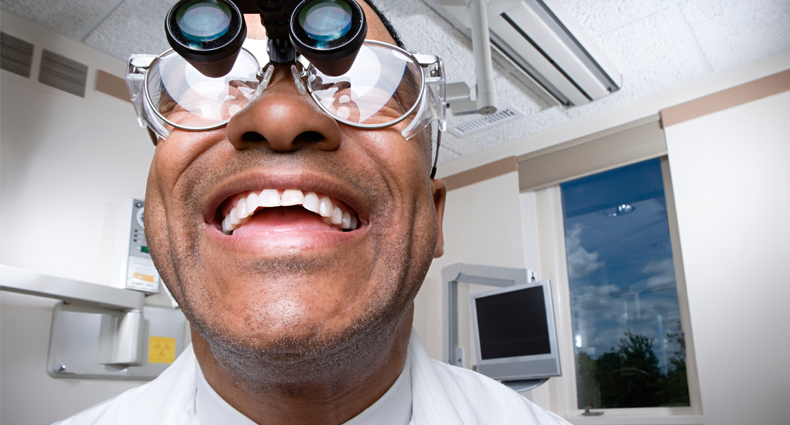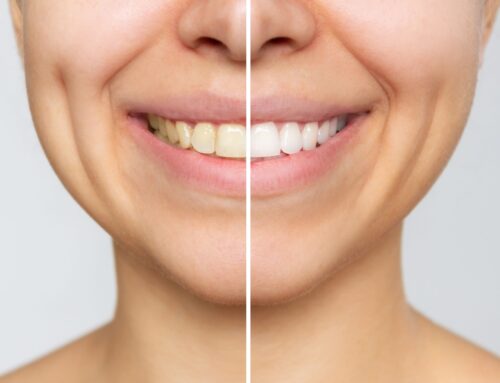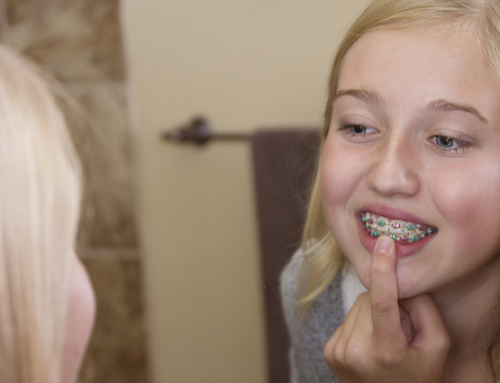5 Things You Wouldn’t Expect Your Dentist to Know About You

You may have told your kids that you have eyes on the back of your head as a tactic to keep kids in check. The same actually applies to dentists. Your mouth is a crystal ball into your health and lifestyle. Get this…in Adult and Cosmetic Dentistry, a whopping 50% of adults have developed some type of gum disease, whether it is genetic or acquired. This statistic is not meant to scare you but help you to realize just how important good dental health is for your life!
Do you have mouth sores, gum bleeding, bad breath? If none of those side effects are present, it is still best to remember that even a normal looking and/or feeling mouth can tell you, dentist, more than you ever imagined. Aside from pointing out the evident cavity or stained teeth, dentists can tell if you are sick, highly stressed, and even pregnant! The list is extensive because “good dental health is a reflection of good health overall.” Here are a handful of things that can be discovered or learned from your visits to the dentist.
5 Things Your Dentist Can Tell About You From Your Teeth
1. Disease and Illness
- Oral cancer – Starting as a small spot in the back of your mouth or under your tongue, Snodgrass‐King Dental Associates can help to find an early appearance of oral cancer.
- Heart disease – Keep your gums happy because gum disease and bacteria can travel down to infect your heart. Yikes!
- Sinus infection – Because the jawbone and top teeth are near the sinuses, toothaches may actually be sinus pressure from an infection.
- Diabetes – A number of patients with sudden bone loss, frequent oral abscesses, and/or gum disease are diagnosed with diabetes and are often unaware.
- Dementia – Many who lose cognitive skills show early signs of dementia. There are also studies out there linking poor oral health to the development of dementia.
- Osteoporosis – Obviously found in weakening bones, osteoporosis can be found through receding gum lines and loose teeth from the thinned jawbone.
2. Eating Disorders
Anorexia and bulimia are two more common eating disorders – both of which lead to malnutrition. Some patients tend to have bleeding gums or dry mouth, while others specifically with bulimia have tooth erosion from stomach acids. This severely affects the enamel of your teeth, let alone your entire body.
3. Heavy Drinking
Aside from the lingering smell of alcohol, heavy drinking patients are prone to dry mouth and cavities because alcohol is high in sugars. A dry mouth also leads to cavities due to lack of saliva, which is the agent that neutralizes harmful acids. Lastly, we all know that alcohol abuse is damaging to our bodies in general. Please drink responsibly.
4. Pregnancy
Almost 50% of pregnant women develop gingivitis. A much smaller percentage of women develop a pyogenic granuloma or a pregnancy tumor on the gum. Some pregnant women will simply need more frequent dental care.
Developing toothaches and sensitivity can be a sign of pregnancy as well. While this symptom on its own won’t let your dentist know you are pregnant, it is a possible problem that comes with common hormone changes.
On another note, let your dentist know if you are pregnant. X-rays and certain treatments may not be safe during pregnancy.
5. Stress and Anxiety
Have you been biting your nails? Grinding your teeth? Clenching your jaw? Teeth can chip and crack from these anxious habits. Stress wreaks havoc on our bodies. Take up yoga or plan a mini vacation. Relieve your mouth and mind from all that stress. You’ll thank yourself later.
Find Good Dental Health at Snodgrass and King in Middle Tennessee
Don’t Freak Out! You may be thinking, “My mouth is giving away my secrets!” But the list goes on and can in fact save your life in many instances. Those bi-yearly visits absolutely make a constructive difference to your health and future. Stressed out? Hypochondriac? Simple solution: don’t stick your tongue out to dental hygiene. Instead, take care of your teeth and gums. It’s not just about impressing Snodgrass-King Dental Associates – it’s about your oral health.





